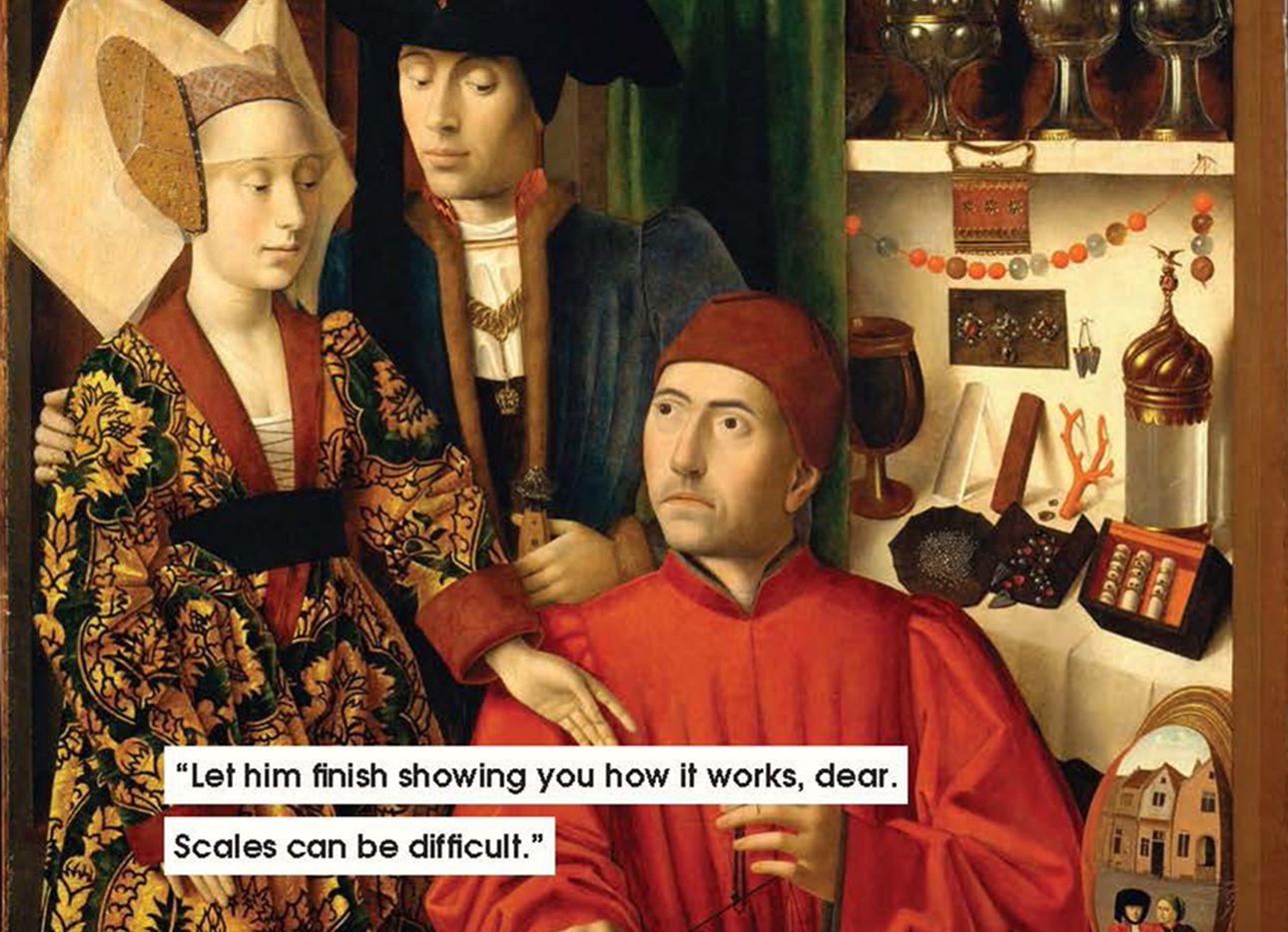
In Her New Book, a Comedienne Explains the Mansplainers of the World
In 1617, German artist Jobst Harrich completed an oil painting on a copper canvas. The work, which depicts a flaxen-haired girl exposing her left breast to a flock of balding guys, was one of the images that turned up, more than four centuries later, when Detroit-based comedy writer Nicole Tersigni Googled “woman surrounded by men.” She’d had a long day, and, while scrolling through Twitter to unwind, came across a man telling a woman’s own joke back to her—a mansplaining incident she’d encountered many times—that prompted the search. Tersigni posted Harrich’s painting to her feed and tweeted, “maybe if I take my tit out they will stop explaining my own joke back to me.”
She applied this tactic to other classical paintings, such as Thomas Gainsborough’s 18th-century work “Conversation in a Park,” depicting a gent gesturing toward a stoic lady (“you would be so much prettier if you smiled”), and a 1959 Norman Rockwell cover for the Saturday Evening Post, which portrays eleven men ganging up on a lone woman in a jury room (“thanks I’m gay now”). The thread went viral. A few days later, an agent contacted Tersigni, proposing that she turn her clever mash-ups into a book.
The resulting volume, Men to Avoid in Art and Life (Chronicle Books), sold out within days of its release. It features more than 90 artworks accompanied by wince-worthy captions, and categorizes offenders for easy recognition. Anyone who’s ever been put down by a less-qualified man will be intimately familiar with them: There’s the Comedian, who doles out racist and sexist jokes and believes those who don’t respond to them simply don’t understand, and the Sexpert, who thinks he knows the female body better than people inhabiting female bodies do. Other culprits include the Patronizer, the Concern Troll, and the classic Mansplainer. Meme-ing artwork isn’t new, but Tersigni’s approach offers more than a witty caption. She suggests that these men, and the women forced to endure them, have existed for hundreds of years, and that there are as many instances of the annoying, frustrating experience as there are old paintings. Tersigni dresses down the mansplainers of the world, and, with her brilliantly funny pairings of art and text, gets the last word.